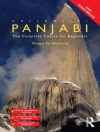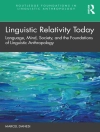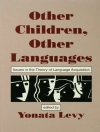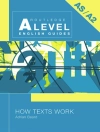This edited book brings together documented evidence and theoretical propositions on the essential mediating role of digital technology in L2 teacher education and professional development. Topics range from technological affordances in teacher education, to challenges and responses to emergency transition from face to face to virtual professional development, to successful practices of online teacher training courses. Bringing together examples from various countries and contexts of how L2 teacher trainers and trainee teachers view these forced changes and react to them, the volume fills a gap in the use of digital technology in contexts where teacher educators and trainee teachers are not technology-literate and not prepared for technology-oriented education. In addition to a Foreword by Mark Warschauer and Introduction and Conclusion chapters by Editors, the volume features 13 full-length chapters by some of the well-known experts from countries such as Australia, Finland, Mexico, the UK, the USA, Spain, Singapore, Turkey and Sweden.
Table of Content
1. Introduction: Educational technology in teacher education.- 2. Reimagining education is dead. Long live reimagining education: New technological innovations in second language teacher education and professional development.- 3. Extending blended learning and the roles of technology to meet teacher-training needs in the New Normal.- 4. Technology-enhanced language teacher development during the COVID-19 pandemic: Experiences of Southeast Asian English language teachers.- 5. ’We’ve been able to continue with our teaching’: Technology and pedagogy in emergency remote language education.- 6. Corpus linguistics in English language teacher education during the COVID-19 pandemic: Exploring opportunities and addressing challenges.- 7. Digital Competence and Teaching Practices of Language Teachers in Sweden in a COVID-19 World.- 8. Assessing instructional design during emergency remote education.- 9. Technology + pedagogy in EFL virtual classrooms:teachers’ professional needs on technology-enhanced pedagogy.- 10. A Pandemic to Remember: Best Practices in an Online Language Acquisition Methods Course.- 11. Enhancing professional learning of primary teacher students of L1 and L2 through a hybrid learning environment.- 12. CALL for global learning: Using World 101 in an online TESOL Methods course.- 13. Learning to collaborate through telecollaboration: Key knowledge for novice teachers in today’s world.- 14. Opportunities for Pre-service Teacher Learning in Video-Mediated Peer Interactions: Focus on Classroom Interactional Competence.- 15. Conclusion: What did we learn from the COVID-19 pandemic?
About the author
Karim Sadeghi is Professor of TESOL at Urmia University, Iran, and is the founding editor chief of Iranian Journal of Language Teaching Research, a Scopus Q1 journal. His recent publications have appeared in Frontiers in Psychology, Current Psychology, System, ESP Journal, RELC Journal and Assessing Writing among others. His most recent books are Assessing Second Language Reading (Springer, 2021) and Talking about Second Language Acquisition (Palgrave, 2022).
Michael Thomas is Professor of Education and Social Justice and Chair of the Centre for Educational Research (CERES) at Liverpool John Moores University, UK and Principal Fellow of the Higher Education Academy. He holds Ph Ds from Newcastle University and Lancaster University respectively and is author or editor of over 30 books and peer-reviewed special editions on computer-assisted language learning and online education. He is founding editor of four book series, including Digital Education and Learning, Advances in Digital Language Learning and Teaching and Global Policy and Critical Futures in Education












